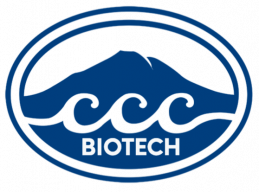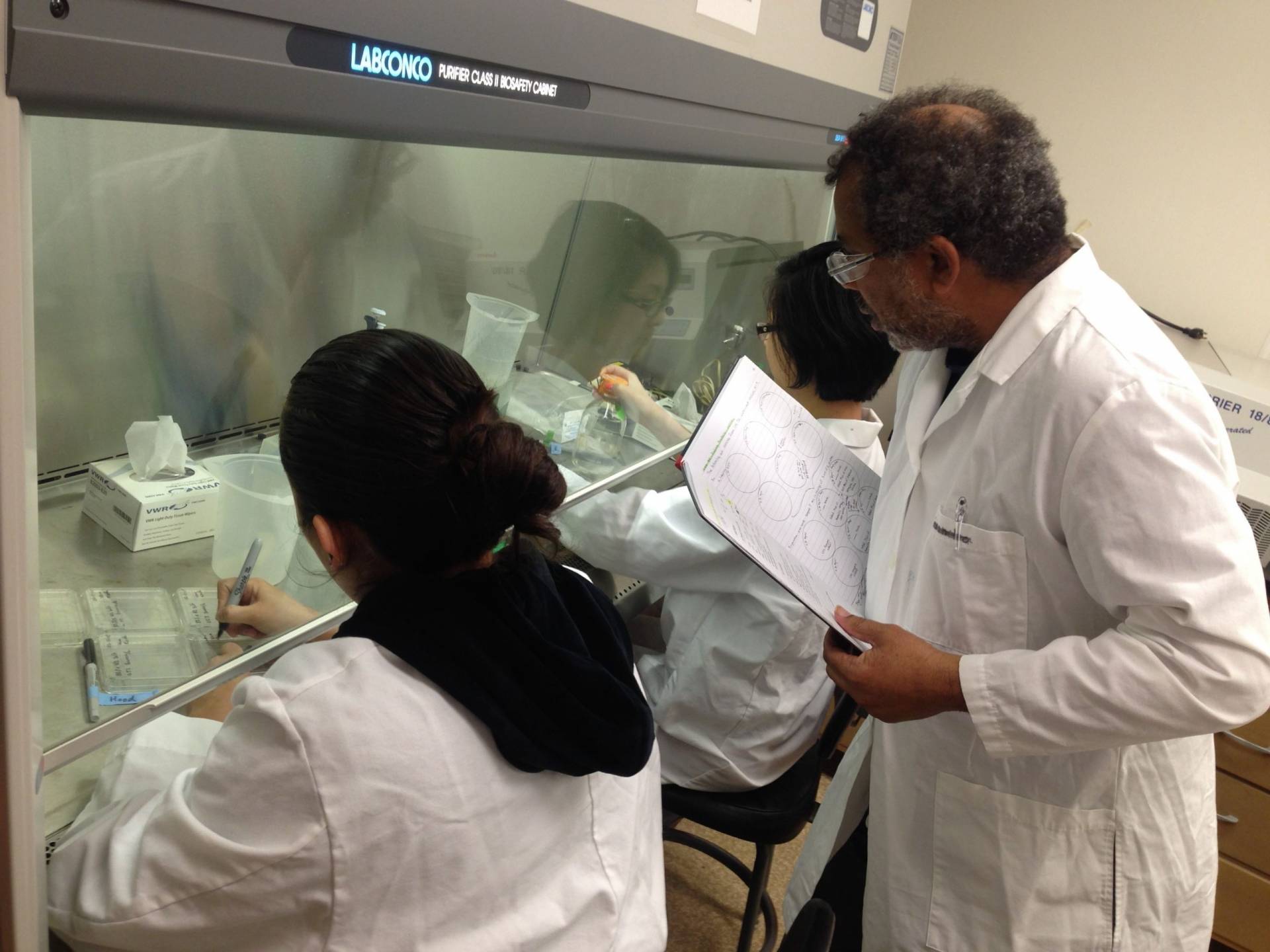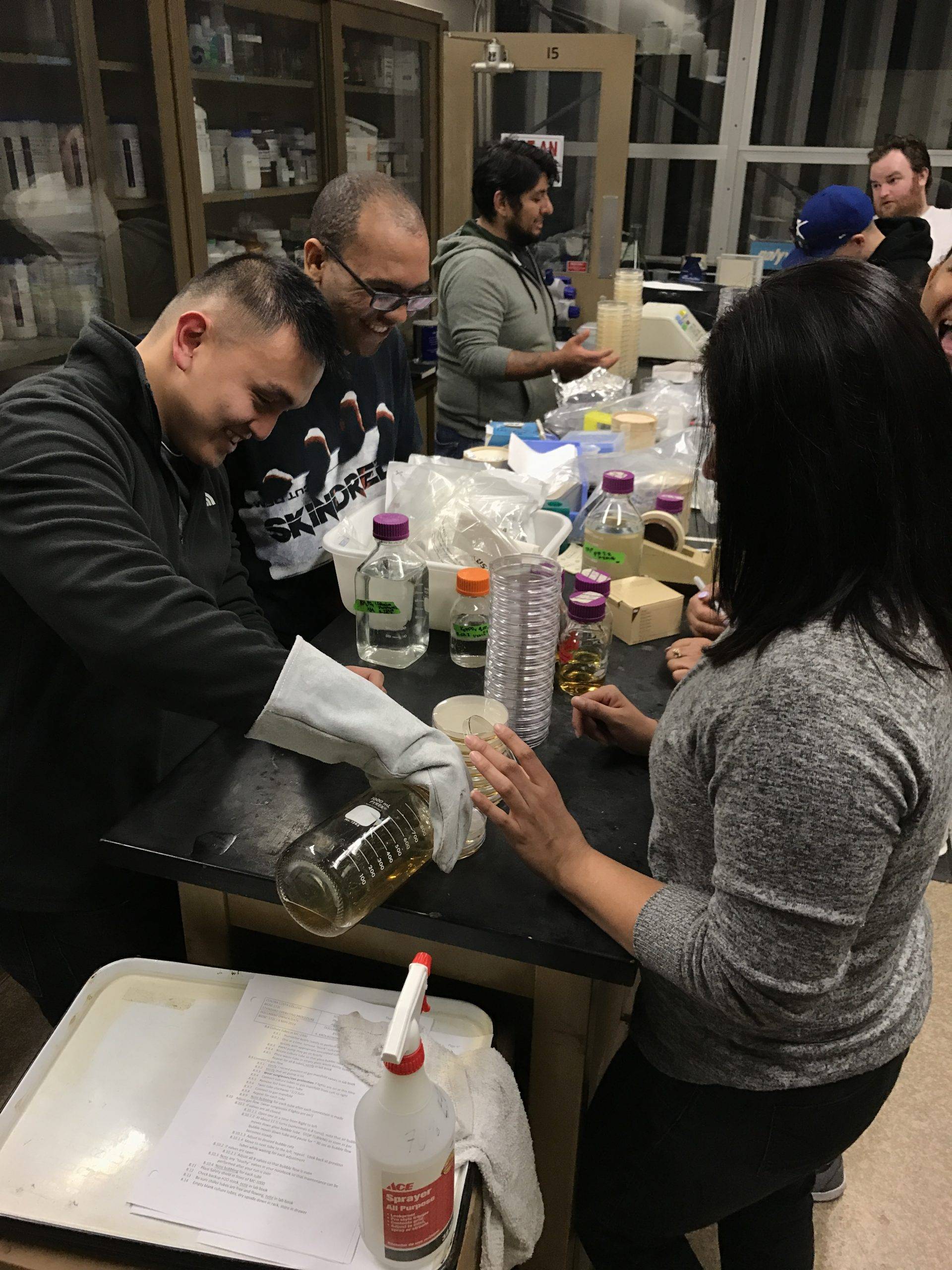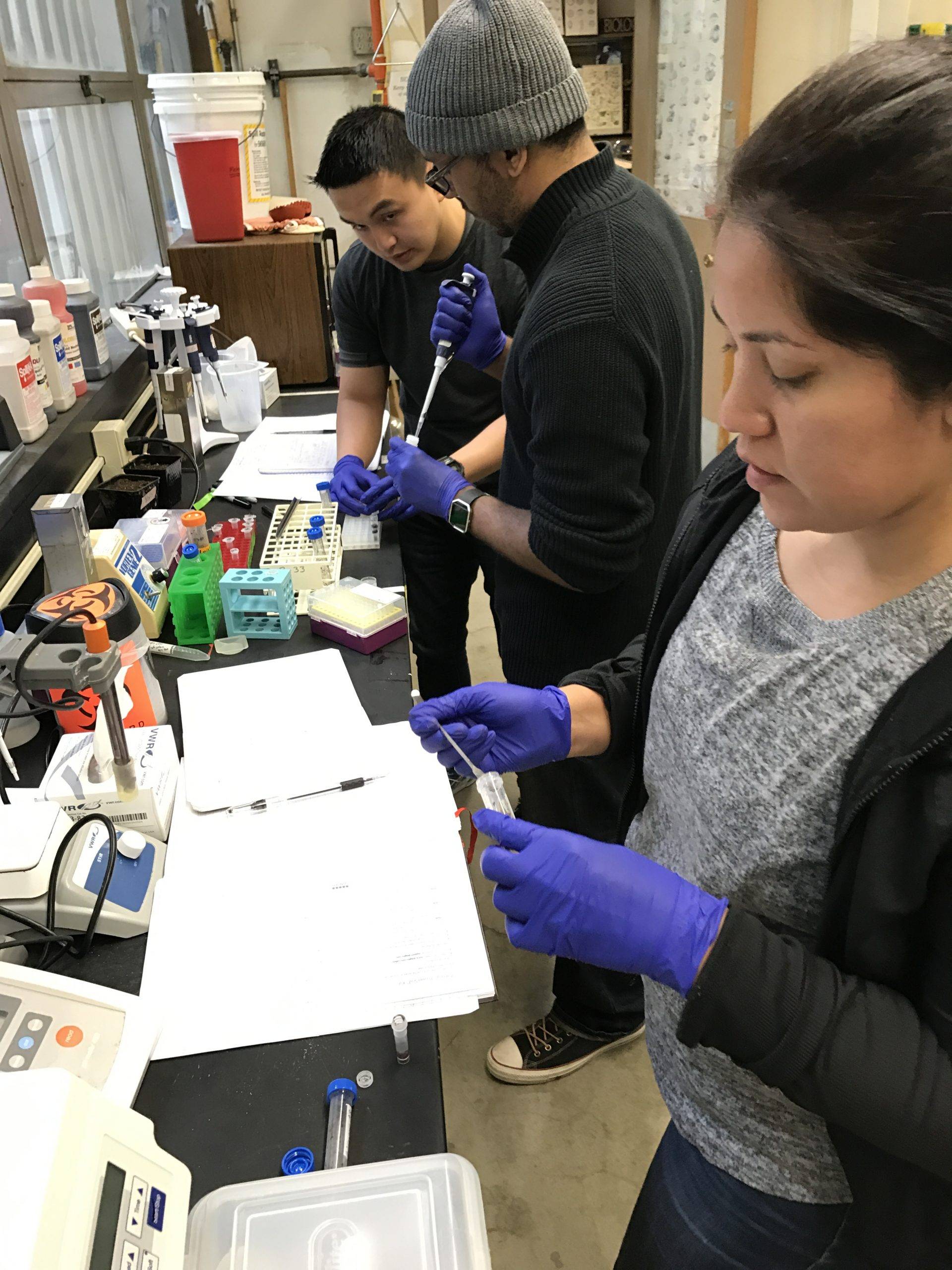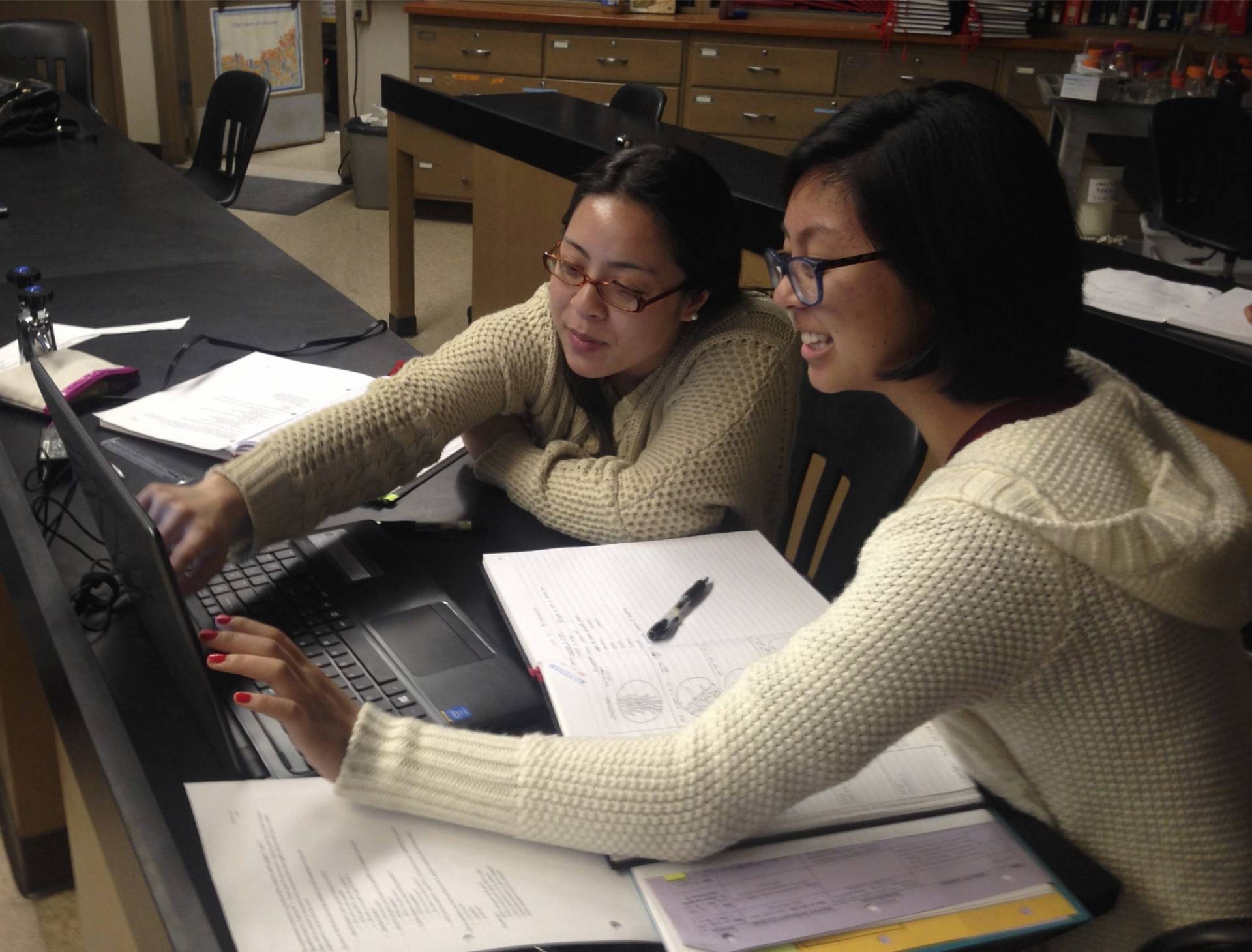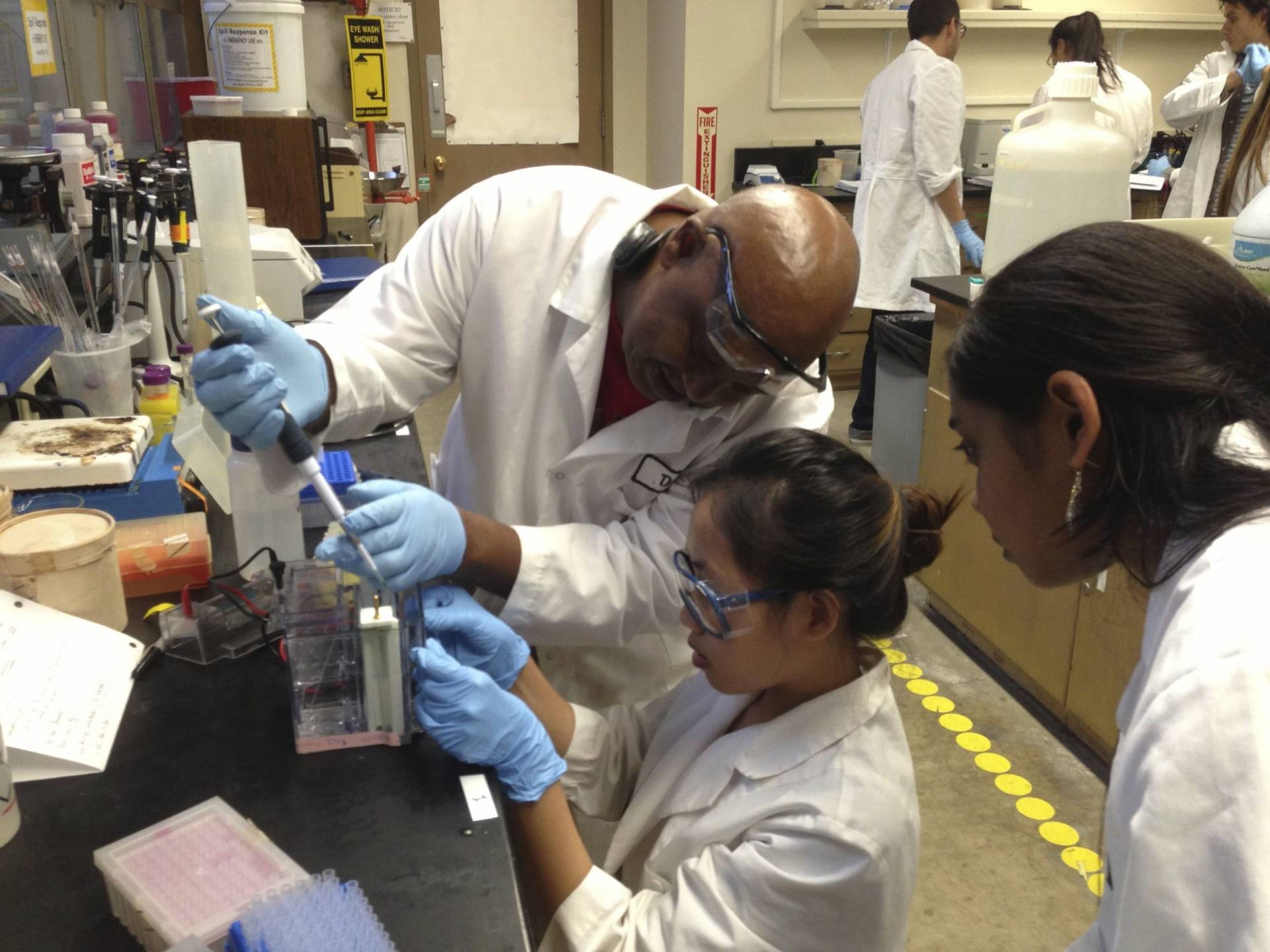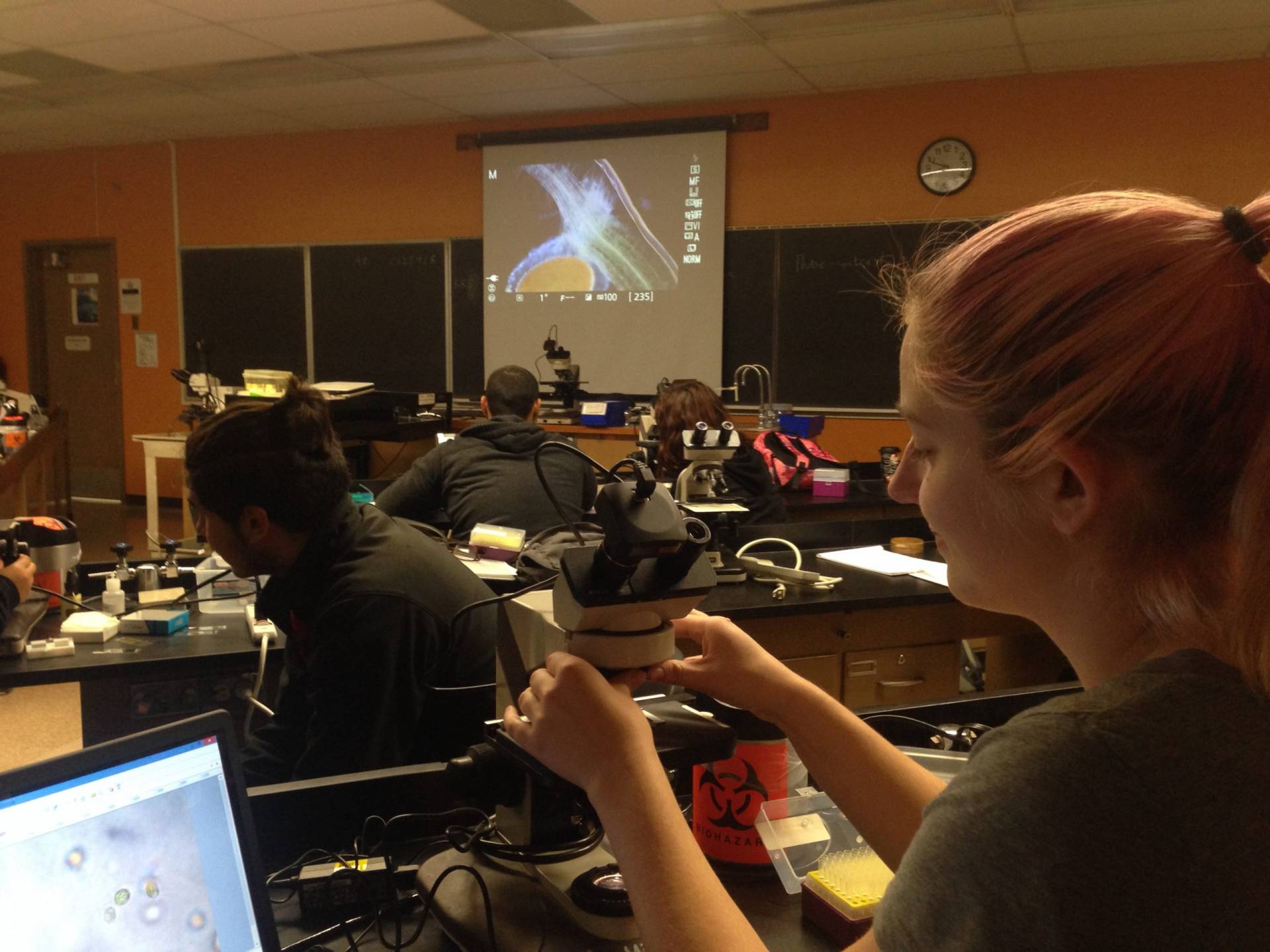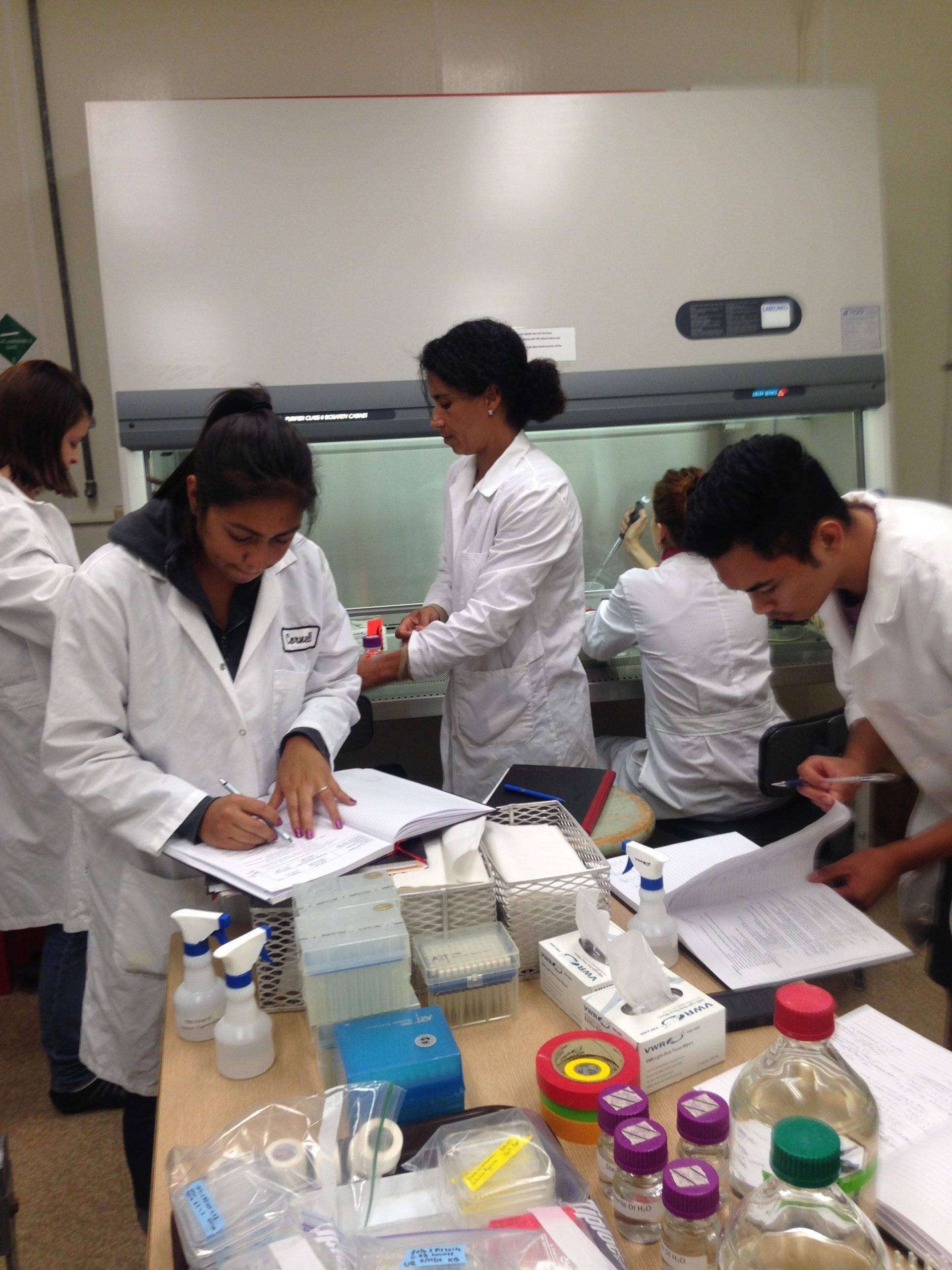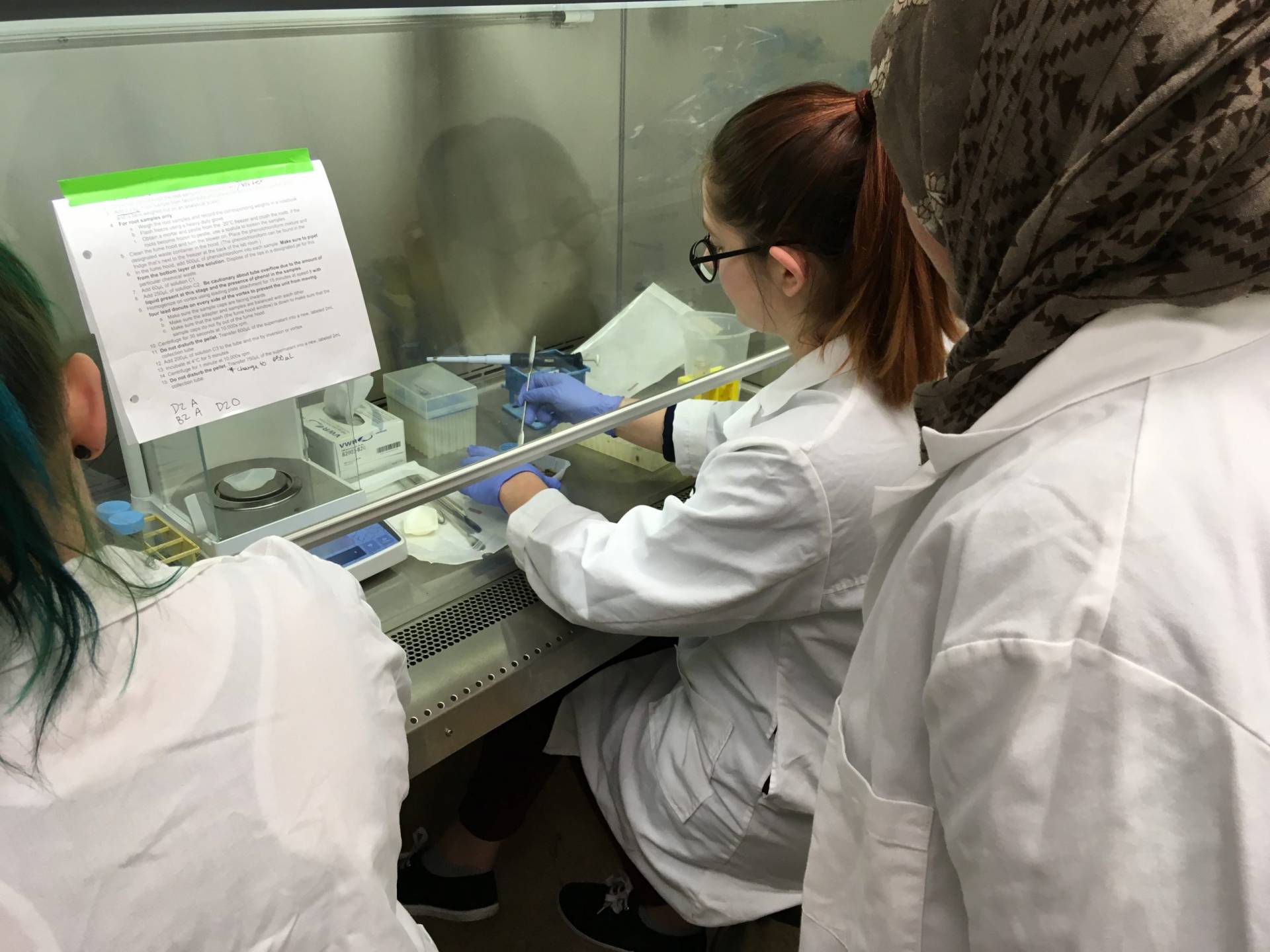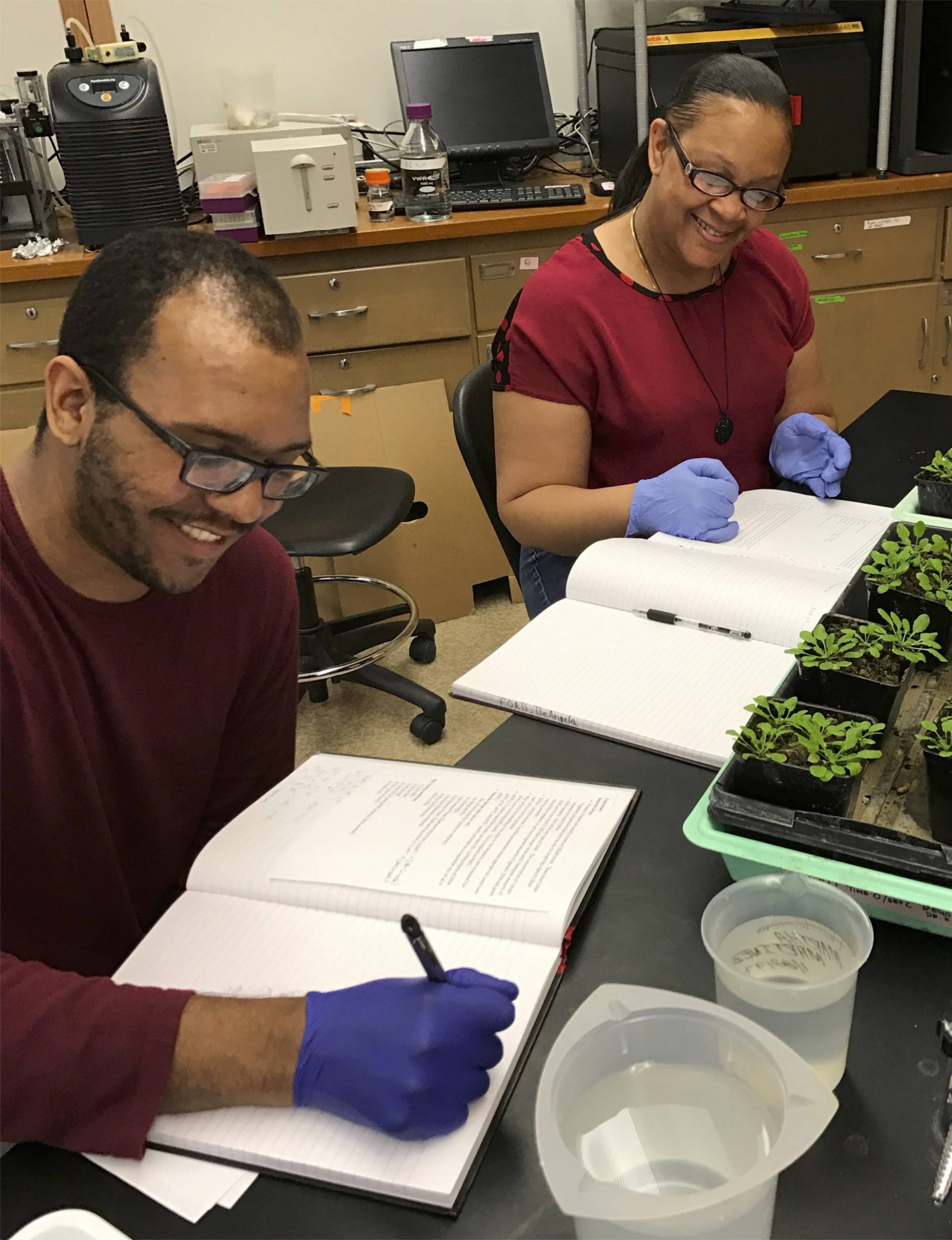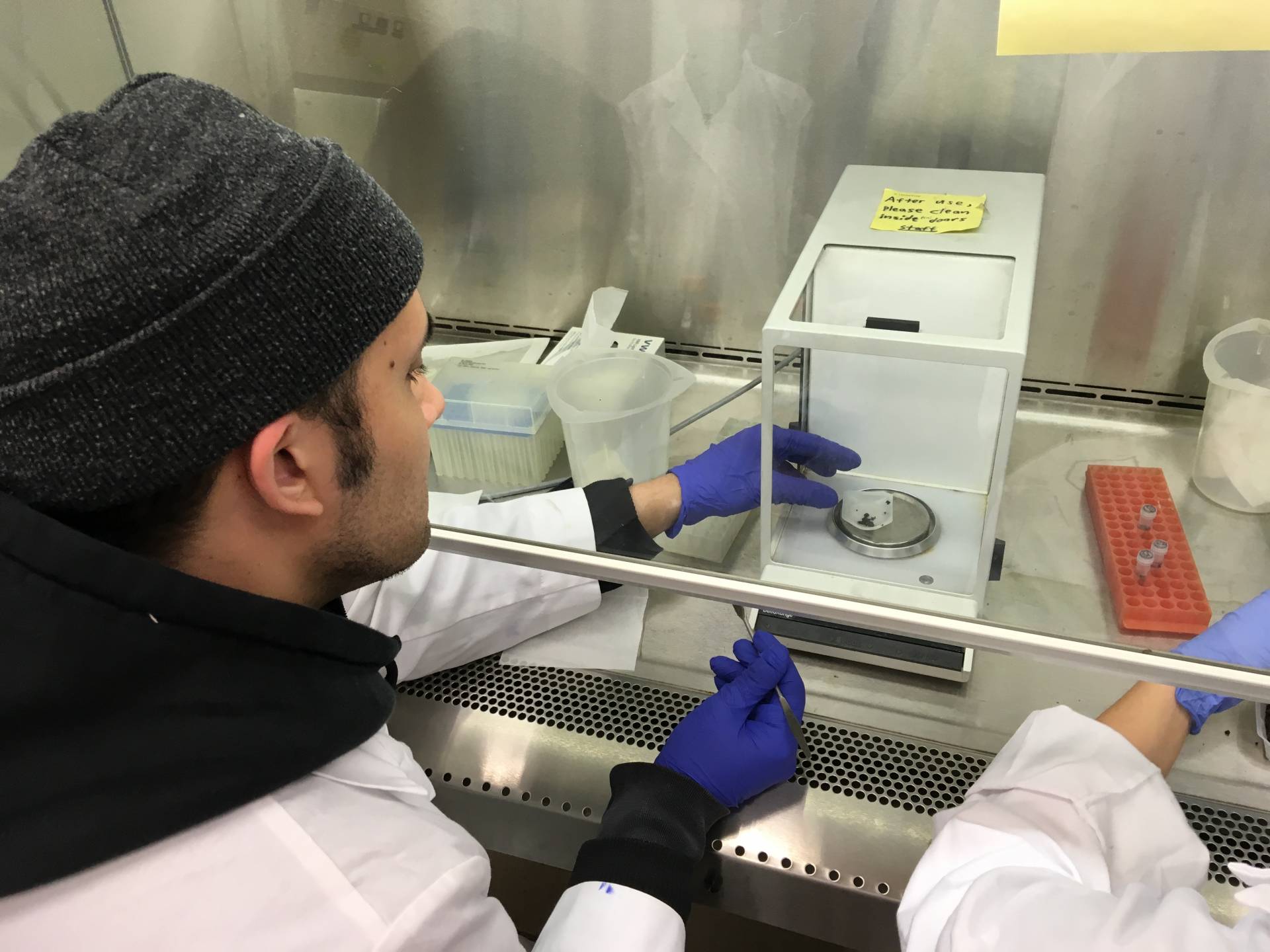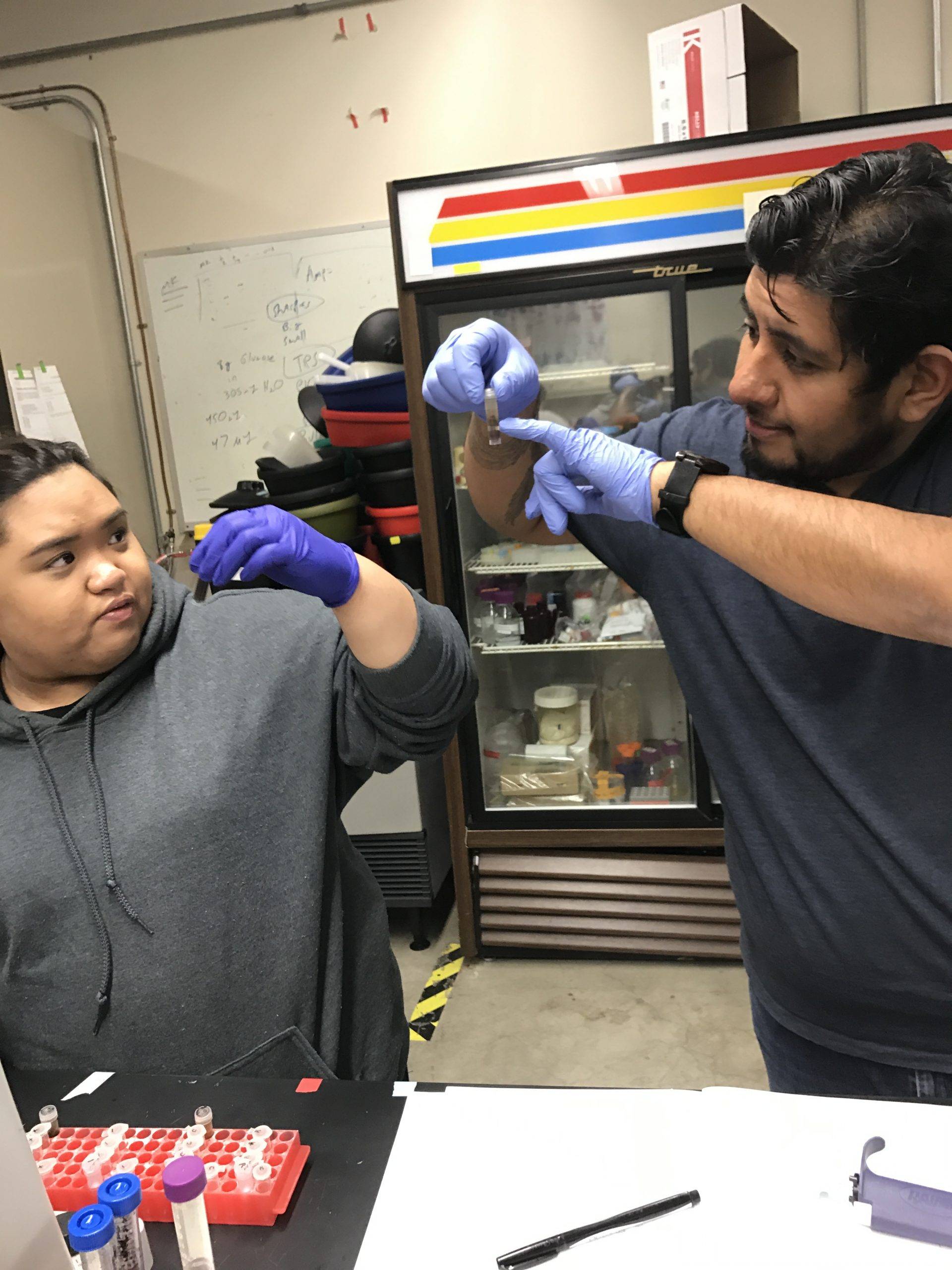BIOSC 157 (or BIOSC857N) This course is designed to provide students wanting to enter the field of biotechnology with a solid foundation in the chemical, biochemical, microbiological, mathematical, bioinformatic and regulatory concepts used in biotechnology labs. Students practice laboratory calculations, design and analyze experiments, and become familiar with the documentation and practices important for working in a regulated environment (laboratory notebooks, QA/QC, SOP’s, cGMP). Good communication and work-readiness skills are emphasized.
BIOSC 159 (or BIOSC859N) This course is designed to provide students with training in the skills and applications commonly used in Biotechnology and Molecular Biology laboratories. It will provide technical practice with analytical instruments, the formulation and use of reagents, and the culture and study of model organisms. Students will learn and apply the Scientific Method, perform data analysis, keep a laboratory notebook according to cGMP, follow Standard Operating Procedures and practice good communication and teamwork skills as they carry out laboratory experiments that reveal foundational concepts of biology, biotechnology, and molecular biology
Skills in
- Polymerase chain reaction
- Bioassays
- Maintaining detailed lab records
- Laboratory notebook according to cGMP conventions.
- Data logging
- SOP (following, updating, writing)
- QA/QC practices
- Laboratory and solutions calculations, perform basic dilutions
- Demonstrate proficiency with precision measuring devices (for example; micropipettors, analytic balances, pH meter, etc) and other general lab techniques
- Aseptic technique (establish, maintain, and manipulate plant tissue culture; microbiological analysis)
- Molecular biology (DNA extraction, Analyze DNA molecules using the polymerase chain reaction and agarose gel electrophoresis ,determine the relative sizes of DNA molecules using standards)
- Grow, monitor, and harvest samples from a bioreactor over a time course. Produce and analyze a batch record of these samples
- Work-readiness skills such as an ability to communicate effectively, work as part of a team, and critical thinking. (Others include: global knowledge, self-direction, writing, adaptability, self-knowledge, quantitative reasoning, social responsibility, ethical judgment, and intellectual skills
Knowledge of
- Lab processes and procedures
- cGMP and GLP
- Batch records
- statistical analysis and graphing to analyze and present experimental results
- bioinformatics tools (NCBI, BLAST, and Model Organism resources such as TAIR, WormBase, etc.
- pH, biological molecules, cell types
- Cell culture
- genetic enginering and molecular biology techniques
- Analyze proteins using size exclusion and ionexchange chromatography, SDS-PAGE, and ELISA technologies. Determine protein concentration with a microtiter plate format assay
Ability to
- Method development
- Follow SOP’s
- Accurate data collection
- Working in a regulated environment (cGMP conventions, GLP practice)
- convert between metric units, calculate and prepare protocols for basic dilutions
- Understand and perform calculations related to reagents, solutions and media formulations (including basic chemistry, dilutions, buffer recipes, unit conversions, molarity, chemical reactions, acid/base, temperature, ions)
- Use laboratory investigations and appropriate procedures to generate accurate and meaningful data and derive reasonable conclusions from them
- principles of commonly used techniques of biotechnology (for example; molecular biology, biochemistry, microbiology, bioinformatics, etc.)
- Communicate effectively and work as part of a team
What types of jobs does it prepare for?
- Research and lab support
- Manufacturing Technician
- Laboratory Technician
- Quality Control Technician/Assistant
- Media preparation
Core Competencies
- Recognize when information is ncecssary and respond to appropriate personnel (Manage and Communicate information)
- Errors in technical documents noted, reported, and changes suggested (Manage and Communicate information)
- Quality process at EVERY LEVEL is a requirement of the law – even en food processing with the lowest level employee (why are you puttimg this particular label on this particular package?)
- quality testing: Sampling, documentation, extraction, assay, regulations
- safety testing (microbial)
- Perform calculations related to reagents, solutions and media formulations
- Follow SOP’s and processes exactly (Carefully do each step in order. Know exactly how results of one protocol flows into the next. )
- Maintain laboratory notebook and associated documentation (GLP-level lab notebook with detailed notes about steps taken in lab, Absolute honesty when deviated from procedure, batch records, perfecdt label detail)
- Strong technical skills (precision in pipetting, weighing, sample handling, avoid contamination)
- Testing for THC/CBD levels; microbiology/safety, pesticide residue/safety (sample prep and processing – homogenate, ratios, filtering, analysis)
- Test for purity, potency, contamination (sample prep – flower/concentrate of oil or crystals/edibles/topicals)
- storage of samples, product, finish and fill, labeling, tracking
- Being willing to adjust (carefuly) to changes in procedures
- Quality process at EVERY LEVEL is a requirement of the law – even en food processing with the lowest level employee (why are you puttimg this particular label on this particular package?)
- People will use products- that’s why being focused is important even when on the 35th of 75 samples processing that day. These are going in people’s bodies
- Micropipetting (near perfect use), balances, volumes, etc. Clients depend on strong technique!!
Course outlines of record for complete information. BIOSC157 COR and BIOSC159 COR
